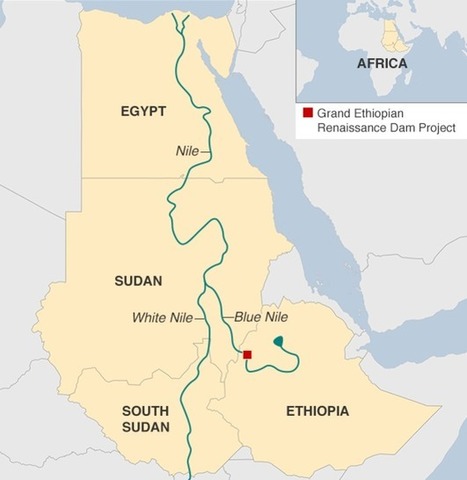"Over one million people in sub-Saharan Africa will contract malaria this year because they live near a large dam, according to a new study which, for the first time, has correlated the location of large dams with the incidence of malaria and quantified impacts across the region. The study finds that construction of an expected 78 major new dams in sub-Saharan Africa over the next few years will lead to an additional 56,000 malaria cases annually."
Get Started for FREE
Sign up with Facebook Sign up with X
I don't have a Facebook or a X account
 Your new post is loading... Your new post is loading...
 Your new post is loading... Your new post is loading...

Taylor Doonan's curator insight,
March 24, 2018 6:07 PM
This video shows a water filter created by an engineer from Ghana and members of the community talking about how much the filter has helped them. The chemicals in the water made it unsafe to drink but this filter purifies the water to make it safe.
|

Kevin Cournoyer's curator insight,
May 6, 2015 7:22 PM
This article discusses the dispute between Egypt and Ethiopia over the construction of a dam that would provide Ethiopia with a larger share of the Nile's water. Egypt is wholly opposed to this dam because it would mean less water for the country, which so desperately needs it. With 95% of the population of Egypt living within 20km of the Nile River, a reduction in the amount of water supplied to these tens of millions could potentially spell slow disaster. At the same time, however, Ethiopia desperately needs water from the Nile in order to provide sustainable energy for its citizens.
The Nile has been a source of life and energy for thousands of years in an oppressively hot, dry place. The ancient Egyptians counted on the Nile to flood every year so that they would have arable land and used the large river to irrigate their farmland. It is almost ironic, therefore, that Egyptians are once again counting on the water of the Nile to help them survive in such a harsh climate. It seems that the Nile is one of those natural geographic features that is pivotal to political, economic, and social wellbeing. It represents the nexus between natural landforms and the political and economic goals of human beings and nations. Dispute over use of the Nile as a natural and life-giving resource is not the first instance of human debate over possession or use of natural geography and it likely won't be the last.
Adrian Bahan (MNPS)'s curator insight,
March 31, 2016 11:57 AM
85% of the Nile's water comes from the Blue Nile that originates in the Ethiopian highlands--it is the Blue Nile that Ethiopia has been working on damming since 2011. The Grand Ethiopia Renaissance Dam (GERD) will be located near the border with Sudan (see in Google Maps). Prior to this trilateral agreement, Egypt and Sudan received the majority of the Nile's waters because of outdated colonial-era treaties that ignored upstream riparian states. This explains why in the past, Egypt was so adamantly opposed to Ethiopia's plan fearing that their water supply with be threatened. Today though, the Egyptian President said, "We have chosen cooperation, and to trust one another for the sake of development." Tags: Ethiopia, Africa, supranationalism, political, development, environment, water, energy, borders.
brielle blais's curator insight,
May 1, 2018 10:45 PM
This article shows how important it is for countries to have good relationships with one another. This is an example of political geography. Diverting the Nile would help Ethiopia immensely, producing electricity and providing a water source. Egypt and Sudan were able to create a compromise and agree to share, and a long dispute is now over.
|












This is a great article on the side affects of man made infrastructure. While dams can be used in positive ways they can also have negative effects like this that probably were not even considered.